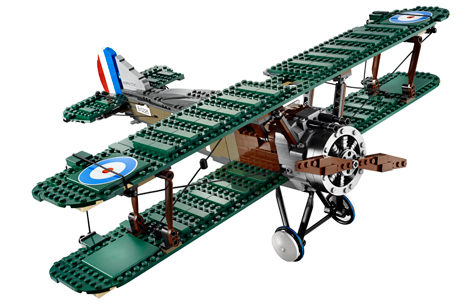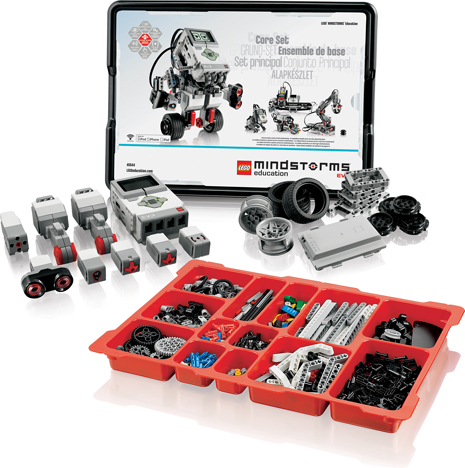
Do the toys we play with as children inspire our future career choice?
This is the question I was pondering before we broke up for Christmas holidays. I put it to twitter and overwhelmingly most of the responses from my design and engineering-based followers mentioned their enjoyment of Lego as youngsters.
Other than Lego, Scalextric, Airfix, Meccano, electronic kits and model trains were also high on their toy lists.
Away from toys themselves, quite a few mentioned that they enjoyed taking stuff apart and then putting it back together again. I think this is a classic trait of most engineers and designers – inherent tinkerers. That curiosity to unveil the inner workings of a product be it a toy or, in @jameshsx case, old tellies and radios.
In Lloyd’s case, his tinkering inclinations were actively encouraged:

I’m also pleased to say that it’s not just the boys who took to tinkering as Helena points out:


But then some kids don’t need toys at all to fuel their imaginations. Russell Beard for instance tweeted that he had great fun hammering nails into a piece of wood whilst Phil Champ and our own Al Dean enjoyed playing with their dad’s tools. The same goes for Mike who tweeted:

So, back to the original question – do the toys we play with as children inspire our future careers? Lego seems to think so. For over 30 years its education initiative – Lego Education – has been working with educators and schools to bring Lego into the classroom. The argument is that playing with Lego enables learning through real-life problem solving. Also, being a fun activity, children become engaged in what they are doing.
By playing with Lego in school, some pupils may discover that they have a real flair for engineering and in a time when we are very short of engineers, this should actively be encouraged.

Lego’s latest teaching resource is MINDSTORMS Education EV3. Designed for pupils aged 10+ years old, it helps to actively engage them in a number of key curriculum areas such as computer science, technology, engineering, and maths






